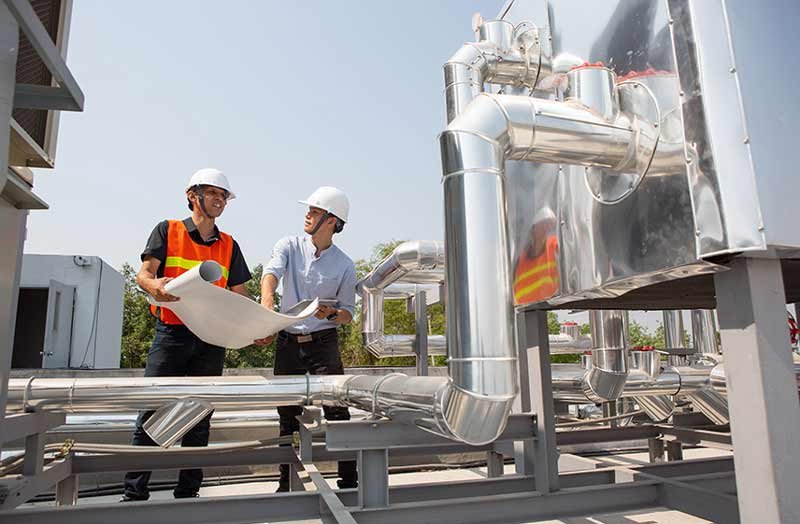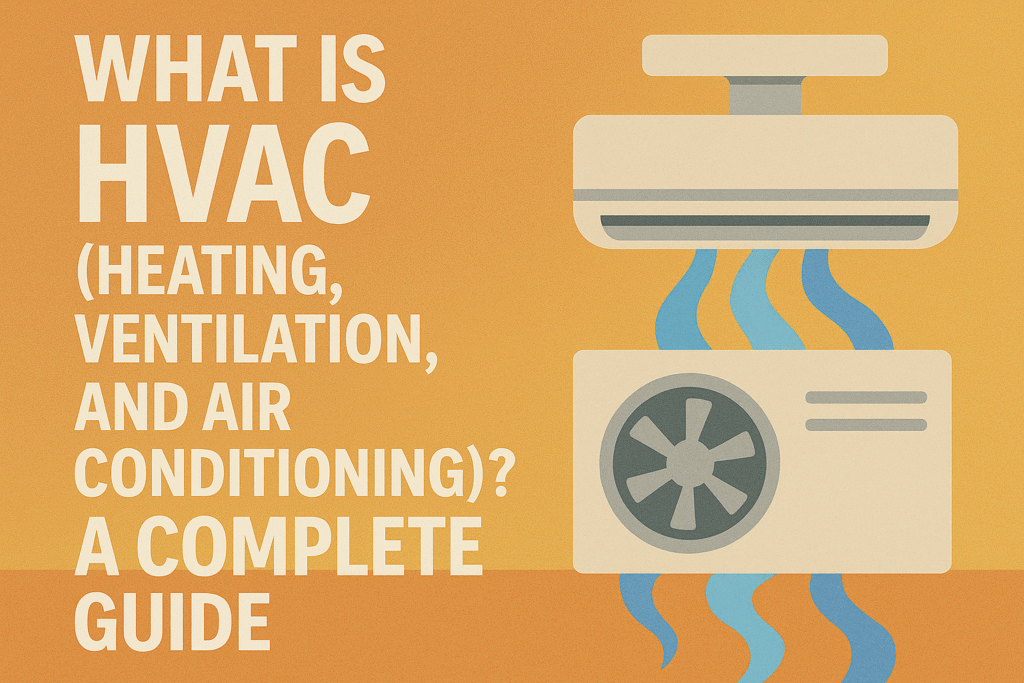Introduction
Heating, Ventilation, and Air Conditioning (HVAC) engineering is a rapidly growing field that plays a crucial role in maintaining indoor comfort, energy efficiency, and air quality in residential, commercial, and industrial buildings. With increasing demand for sustainable climate control solutions and energy-efficient designs, HVAC engineering offers excellent career prospects. If you’re looking to enter this field, this comprehensive guide will walk you through the steps to becoming a successful HVAC engineer.
Understanding the Role of an HVAC Engineer
An HVAC engineer is responsible for designing, installing, maintaining, and troubleshooting heating, ventilation, and air conditioning systems. Their expertise is essential in ensuring optimal indoor air quality, temperature control, and energy efficiency.
Key Responsibilities:
- Designing HVAC systems based on specific building requirements.
- Performing load calculations and energy efficiency assessments.
- Selecting appropriate HVAC equipment and materials.
- Overseeing installation and commissioning of HVAC systems.
- Ensuring compliance with ASHRAE, ISHRAE, and other industry standards.
- Conducting system testing, troubleshooting, and maintenance.
- Implementing sustainable HVAC solutions and energy-saving technologies.
Educational Requirements to Become an HVAC Engineer
To establish a career in HVAC engineering, formal education in mechanical or HVAC engineering is essential.

a. Earn a Bachelor’s Degree
A Bachelor’s degree in Mechanical Engineering, HVAC Engineering, or a related field is typically required. This provides foundational knowledge in:
- Thermodynamics and Heat Transfer
- Fluid Mechanics and Hydraulics
- Refrigeration and Air Conditioning Principles
- Building Systems Engineering and Energy Efficiency
- Computational Fluid Dynamics (CFD) for HVAC Design
Many universities also offer specialized HVAC-focused electives and projects that enhance hands-on knowledge.
b. Consider Advanced Degrees or Diplomas
For career growth, consider enrolling in:
- Master’s in HVAC Engineering, Energy Systems, or Building Services Engineering for specialization.
- Diploma or Postgraduate Certification in HVAC Design & Energy Efficiency from reputable institutes.
c. Alternative Educational Paths
If you don’t have an engineering degree, you can start with:
- Associate’s Degree in HVAC Technology
- Vocational Training in HVAC Systems & Refrigeration
Gain Practical Experience
Hands-on experience is crucial to becoming a skilled HVAC engineer.
a. Internships and Apprenticeships
Many engineering programs offer internships where students work with HVAC firms to gain real-world experience in system design, installation, and troubleshooting.
b. Entry-Level Jobs
Common starting roles include:
- HVAC Technician – Hands-on experience with system installation and repair.
- Junior HVAC Engineer – Assists with design, calculations, and drafting.
- CAD Drafter – Works on creating detailed system blueprints.
Building experience in these roles helps engineers understand practical aspects before advancing into system design and project management.
Obtain Relevant Certifications and Licenses
Certifications boost credibility and job prospects. Some of the most recognized ones include:
a. Professional Engineering (PE) License
- Required for working on large-scale projects.
- Enhances credibility and career advancement opportunities.
- Involves passing the Fundamentals of Engineering (FE) Exam and gaining work experience.
b. HVAC Industry Certifications
- ASHRAE Certification – Recognized worldwide for HVAC engineers.
- Certified Energy Manager (CEM) – Focuses on energy-efficient HVAC systems.
- LEED Certification – Essential for sustainable and green building projects.
- EPA Section 608 Certification – Required for handling refrigerants in the U.S.
Develop Key Skills for HVAC Engineering
To be successful in HVAC engineering, mastering both technical and soft skills is essential.
Technical Skills:
- HVAC Load Calculations and System Design
- Proficiency in HVAC Software (AutoCAD, Revit MEP, HAP, TRACE 700, eQUEST, etc.)
- Knowledge of Industry Codes & Standards (ASHRAE, ISHRAE, NFPA, ISO, etc.)
- CFD Simulation and Thermal Analysis
Soft Skills:
- Problem-Solving and Analytical Thinking
- Project Management and Team Coordination
- Effective Communication and Technical Report Writing
- Adaptability to Emerging HVAC Technologies
Stay Updated with Industry Trends
HVAC technology is evolving with smart HVAC systems, IoT integration, sustainable refrigerants, and AI-driven energy optimization. Keeping up with industry advancements is vital. Stay informed by:
- Attending HVAC trade shows, conferences, and expos.
- Joining professional associations like ASHRAE, ISHRAE, and ACCA.
- Taking online courses on the latest HVAC software and automation systems.
Career Growth and Advanced Opportunities
As you gain experience, you can advance in the HVAC field by:
- Becoming an HVAC Project Manager or Lead Design Engineer.
- Specializing in Energy Audits, Sustainable HVAC Design, or Green Building Solutions.
- Pursuing a Ph.D. or Research in Advanced HVAC Technologies.
- Starting your own HVAC consulting or design firm.
Conclusion
Becoming an HVAC engineer requires education, hands-on experience, technical expertise, and continuous learning. With the increasing demand for efficient and sustainable HVAC solutions, this field offers exciting career opportunities. By following the steps outlined in this guide, you can establish yourself as a skilled HVAC engineer and contribute to innovative climate control solutions.
For more HVAC career insights and expert guidance, stay tuned to SmartHVACGuide.com!



Pingback: Difference Between Split AC, Window AC, and VRF Systems – Which One is Best? – SmartHVACGuide.com